The Strange Bargain of Murder, She Wrote's The Days Dwindle Down
A killer confronts the person they've framed, confesses their crimes, then threatens to take down the wronged man or woman. The police, waiting in the wings, swoop in and safely apprehend the killer. The wronged person sighs with relief and 'The End' appears on the screen.
This is the closing sequence of many movies, including the little known 1949 RKO noir film Strange Bargain. The audience assumes that the ex-suspect can move on and return to a normal, humdrum domestic life. What if they were wrong?
The Days Dwindle Down, the 21st Murder, She Wrote episode of the show's third season, asks that very question but it does so through the lens of the film Strange Bargain. By utilizing footage from the movie and casting the major players in the same roles, it tasks writer/amateur detective Jessica Fletcher with solving a crime that, for thirty years, was considered a closed case. It's a particularly interesting concept -- one that I haven't seen attempted in any TV shows prior or since -- and it elevated the normally conservative Murder, She Wrote to a TV event that likely won't be repeated any time soon.
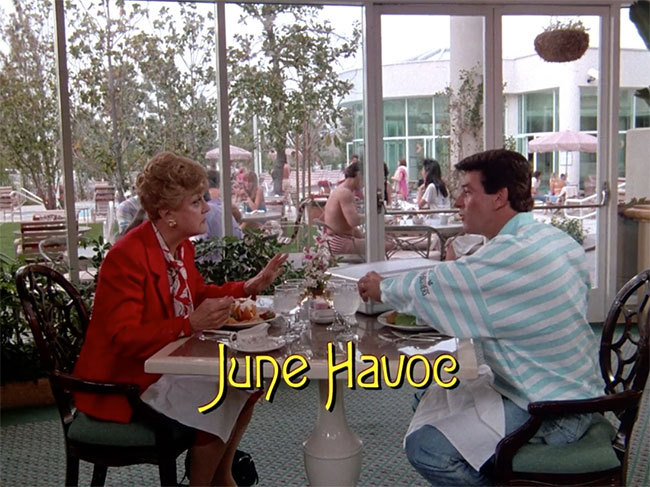
The episode opens with Georgia Wilson (Martha Scott) overhearing Jessica Fletcher discuss her "real-life sleuthing" with her agent. Georgia pulls Jessica aside to ask for her help: her husband, Sam (Jeffrey Lynn), was just released from a 30 year stinct in prison for a crime he didn't commit, but they can't move ahead together without finding out who Sam was doing time for.
Ever the optimist, Jessica offers her help and listens to their tale. The story, told through flashbacks utilizing scenes from Strange Bargain, detail Sam's struggle: while going through a financially turbulent period, Sam (at the request of his wife) requests a raise from his boss, Malcolm Jarvis. Instead of bargaining with him, Malcolm immediately fires Sam, citing both his, and the investment firm's, poor fiscal condition. However, Malcolm proposes a solution to both of their ills: Malcolm is so cash-desperate that he had taken out a substantial life insurance policy, and he planned to kill himself and pose the scene so it looks like murder, allowing his wife and son a secure future. What's in it for Sam? $10,000. All he needs to do is to complete the tableau by firing a few shots inside the Malcolm's study after the suicide, and then dispose of the weapon.
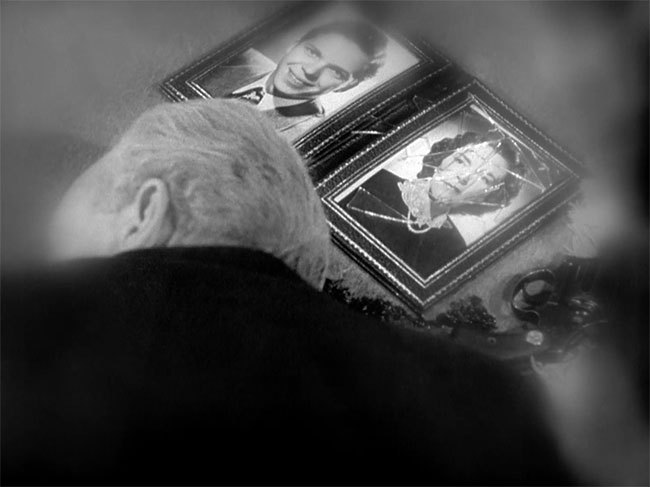
Sam refuses the offer, but Malcolm won't take no for an answer. The night of the planned suicide, Malcolm calls Sam and tells him he's going through with it. Sam rushes over to Malcolm's home to prevent him, but he's too late: Malcolm is lying face down in a pool of blood, gun by his head. On his desk is a personalized note to Sam, along with an envelope containing $10,000 dollars. Sam decides to follow through with the plan, partially out of guilt, and partially because of the money. He takes the note, the gun, and the cash, goes outside and fires two shots through the office window, then disposes of the gun at a nearby pier. He cleans the remaining blood off of himself and the car, but it's to no avail; he ultimately ends up becoming the prime suspect for murdering Malcolm, chased by Lieutenant Richard Webb (played by a pre-Dragnet Harry Morgan), a war-wounded cop with a bum leg, a hooked cane, and a record for always getting his man.
Jessica takes all of this in and immediately concludes that there's no way Sam could be the murderer, and she agrees to investigate further.
This is where certain facts from the film are conveniently -- and permanently -- excised from The Days Dwindle Down: Strange Bargain actually had a happy ending, an ending that didn't involve Sam going to jail. The closing scene sees Sam return to Malcolm's home where he confesses to Edna Jarvis, Malcolm's wife, that he didn't kill Malcolm; instead it was an act of suicide. Consequently, there would be no insurance money. He hands over the $10,000, hoping to wash his hands of the whole affair, when Edna informs him that she knew of Malcolm's plans to kill himself, that she approved, and even coordinated alibis for herself and her son to ensure that they would avoid suspicion.
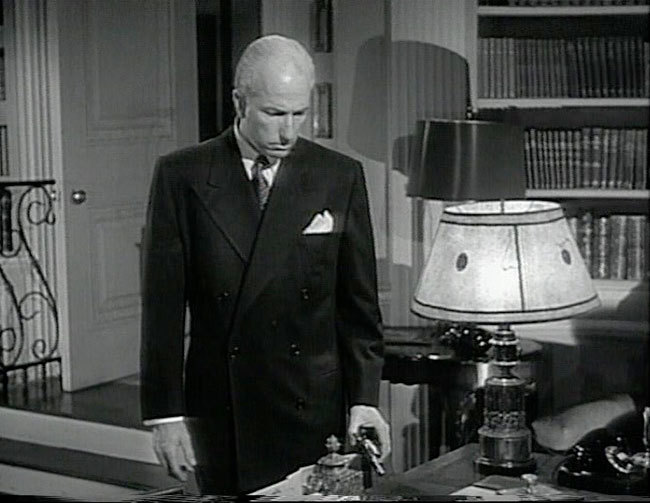
Edna explains to Sam that she had her doubts that Malcolm would follow through, so she returned to the house to listen for the gunshot and, when she failed to hear one she enters, only to see Malcolm standing, gun reluctantly hanging by his side. He simply didn't have the wherewithal to go through with it. "Malcolm was a weakling. I had the courage to do what he couldn't do. [...] It really was suicide, in a way," she explains. "He just needed someone else to pull the trigger." And so she did.
She points a gun at Sam, noting that the police will find him dead -- another suicide -- and she'll be in the clear. She pulls the trigger, misses, merely grazes his arm. A cane stretches into the frame, hooks her arm, and Lieutenant Webb bursts into the scene, knocks Edna's gun to the ground, and the police drag her away. Webb explains been following Sam for days, that they heard everything, and Sam is now absolved of any blame. Georgia rushes in, holds him tight, as he recants: "Darling, I made a terrible mistake but I'll never make another one."
"Oh yes you will," she warmly retorts. "You'll make lots of them. Not like this, but you're a man and men are always making mistakes. Even women make them sometimes." The End. Credits roll. *
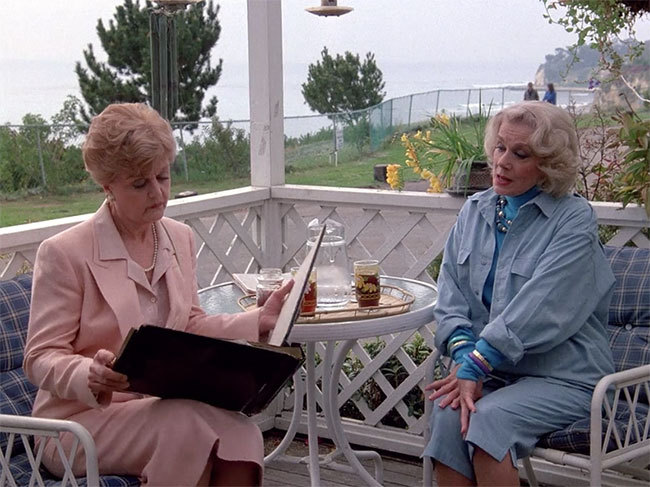
Lacking this information, Jessica hits the trail alongside Sam's son Rod (The Brood's Art Hindle) - a cop, determined to prove his father innocent. They start off by interrogating all living offspring, including Richard Beymer as Sydney Jarvis (presciently acting very much like a proto-Benjamin Horne). From there, Jessica slyly tracks down Malcolm's old secretary Thelma Vantay (played by June Havoc instead of Betty Underwood) and asks her if Edna, Malcolm's wife, could have shot him.
"Mrs. Jarvis couldn't have murdered anybody," Thelma plainly states.
Jessica shoots her a quizzical look. "You mean, she was ...too nice?"
"She didn't have the guts!"
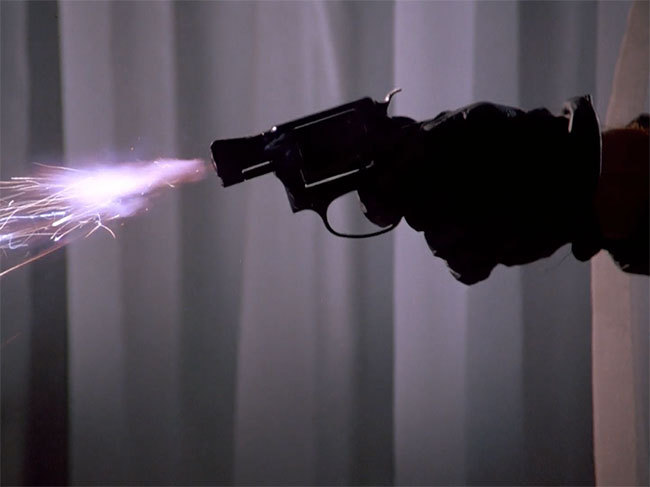
After discussing the case with the Wilson family over a nice home-cooked dinner, Jessica heads back to her hotel room for a fitful rest, only to awoken by a gunshot that found its way into her hotel room chair. The next morning, the cops procure the bullet and note that it belongs to a .38 revolver: the same type of gun that killed Malcolm. Unfortunately all of the prior Jarvis case records are missing, thwarting any attempts to match ballistics.
Jessica, undeterred, tracks down Edna Jarvis (played by Gloria Stuart, as Katherine Emery had passed away), and finds her in a nursing home, barely aware of her surroundings but zealously guarded by Sydney.
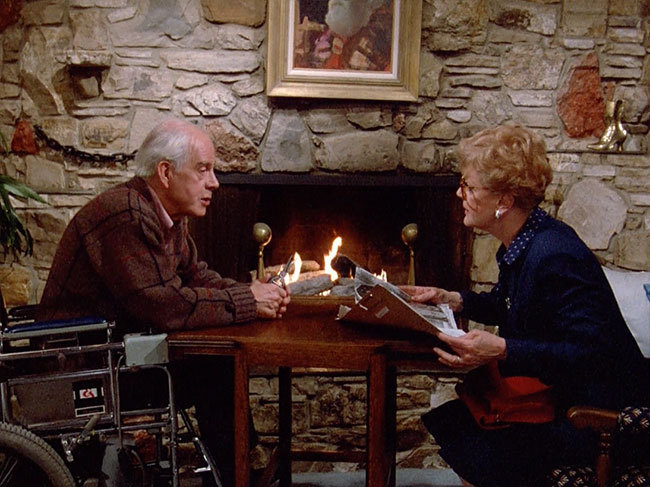
Conveniently, Jessica receives a phone call from a stranger purporting to have something that may help her investigation. Jessica taxi's over to meet the man and is greeted by now-retired Lieutenant Richard Webb (still played by Harry Morgan, whose performance has loosened up over the years). He reveals that he has had the case record the entire time ("My Lindbergh baby," he quips) and they confirm that the bullet fired into her chair was from the same gun. On the subject of Thelma, Malcolm's secretary, Webb remarks that "I figured she was playing bedsheet bingo with the boss."
Jessica enlists Rod, and the two scurry back to Ms. Vantay and, after a few rounds of good cop/bad cop, manage to squeeze out the admission that she deduced Malcolm hadn't killed himself, and figured Sydney was covering it up. Sydney had been perfectly willing to pay her hush money but recently had fought back, knowing she couldn't go to the cops without being brought up on blackmail charges.
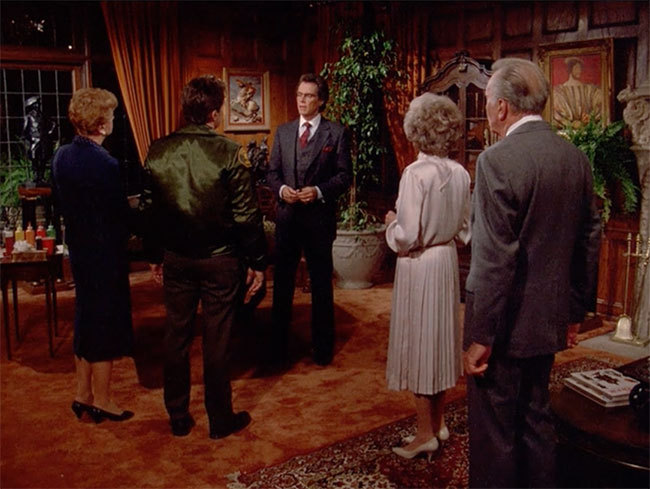
Jessica and Rod gather Sam and Georgina to see Sydney in his drawing room, setting the stage for the big reveal. After quite a bit of verbal sparring with Jessica, Sydney eventually confesses, claiming that he killed his father, and he breaks down the events via more Strange Bargain flashbacks:
Sydney states that he saw Sam when he discovered Malcolm's body in the study. He followed Sam to the pier (indicated in the flashback by black-and-white loafers) where he fished the gun from the water, just in case any prints were still left.
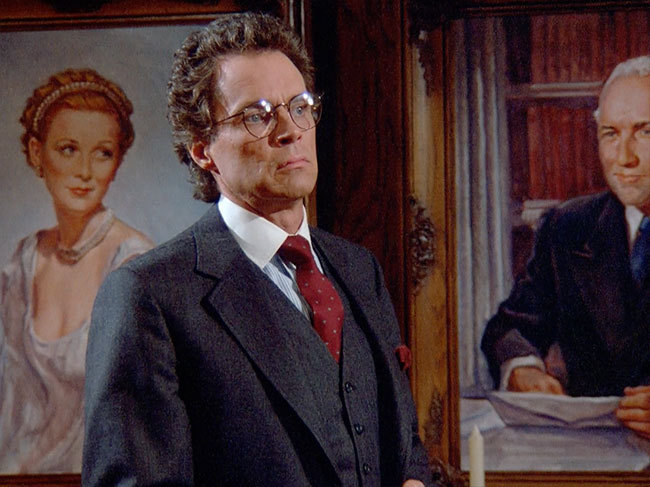
Jessica listens intently, then clucks at him. "You didn't really kill your father at all, did you? Aren't you really covering up for your mother?"
Sydney paces between two portraits of his parents while trying to explain away Jessica's conjecture, but it's no use. He sinks into a nearby chair, defeated, and reveals that, yes, his mother did kill Malcolm. Through another flashback, we see that it was an accident: Edna happened to enter the study when she saw Malcolm, poised with a gun to his head. She struggled with him, attempting to wrest the gun from him, but it went off and Malcolm was no more.
Considering the narrative dissonance, it's not surprising that there was no mention of the film's closing scene now. In fact, all of Sydney's flashbacks are markedly different from the source footage. His shoes are inserted in the flashback footage, as is Edna's tussle with her husband (they don't even try to hide Edna's casting change). It's tough (but not impossible) to explain these discrepancies away as unreliable narration on Edna's behalf, that she shot Sam in self-defense, that she was lying to protect Malcolm's legacy and therefore Sydney's, but the fact that it's never even mentioned 30 years later is glaring.
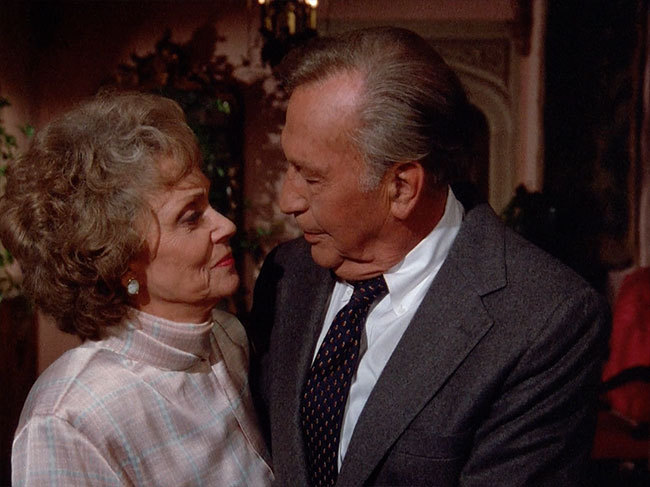
At the end, everyone's happy (or, at least as happy as they can be). Knowing Edna's state, Sam doesn't want to press charges, and they feel they can move on with their lives. The resolution fits the Murder, She Wrote formula of exonerating any female suspects, and defangs Edna in particular. In short, the murder and the resulting events have been whitewashed. Thanks to the lack of morally ambiguous characters, Strange Bargain was hardly noir before The Days Dwindle Down, but Jessica's deductions turn it into something else entirely.
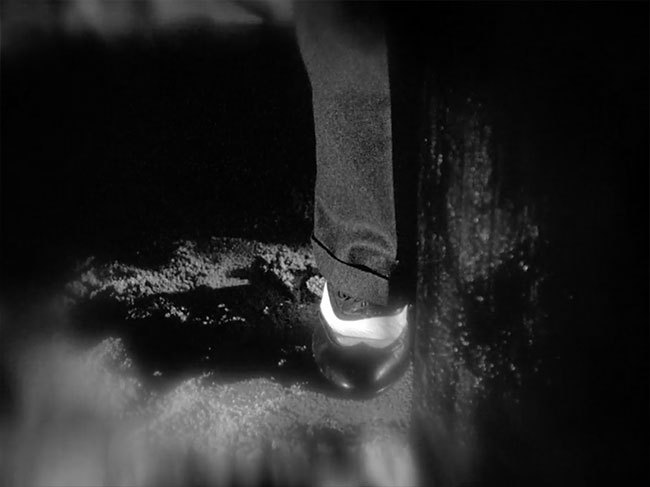
I wasn't familiar with Strange Bargain when I first saw The Days Dwindle Down, and I sought it out simply to see how the Murder, She Wrote writers incorporated the source material. I assumed that The Days Dwindle Down had reversed whatever had been decided at the end of the film, that the events in the film were reshuffled or re-contextualized to put a different spin on the source material, or that the episode would at least would play with point-of-views and unreliable narration. While the concept and Jessica's sleuthing was intriguing and well-executed, the reveal was far weaker, and far less interesting, than the tepid source material. Ideally 'Murder, She Wrote' would have been tweaked to accommodate the film and the characters' needs; not the other way around.
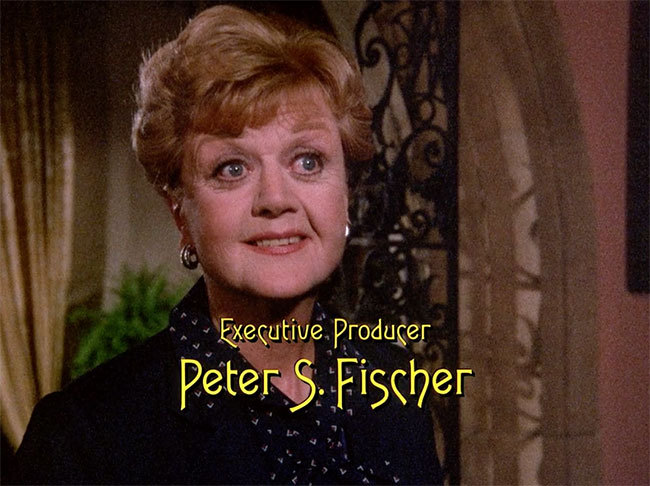 The Days Dwindle Down aired almost exactly 28 years ago, the same span of years between the episode and Strange Bargain's release. I've never seen anything quite like it before (if anyone else has -- note that I'm not counting franchises or TV reunions -- please chime in) and it may be another 28 years before see something like it again. I do believe The Days Dwindle Down to be the most experimental, noteworthy episode of Murder, She Wrote but, while I still bemoan the end result, I heartily recommend it to anyone that will listen. Just make sure to watch it first, and Strange Bargain second.
The Days Dwindle Down aired almost exactly 28 years ago, the same span of years between the episode and Strange Bargain's release. I've never seen anything quite like it before (if anyone else has -- note that I'm not counting franchises or TV reunions -- please chime in) and it may be another 28 years before see something like it again. I do believe The Days Dwindle Down to be the most experimental, noteworthy episode of Murder, She Wrote but, while I still bemoan the end result, I heartily recommend it to anyone that will listen. Just make sure to watch it first, and Strange Bargain second.
Murder, She Wrote: The Days Dwindle Down is available to stream via Amazon Prime.
Strange Bargain is currently unavailable to stream, and is only available as a Region 2 DVD.
- For a more comprehensive look at Strange Bargain, click here.